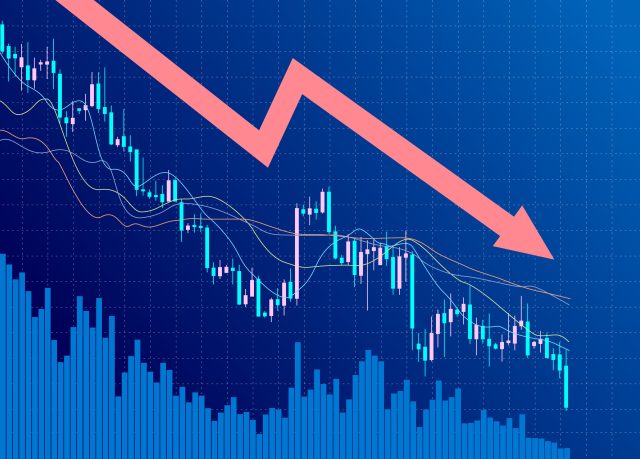This website uses cookies so that we can provide you with the best user experience possible. Cookie information is stored in your browser and performs functions such as recognising you when you return to our website and helping our team to understand which sections of the website you find most interesting and useful.
Promising tonic firm suffers sore blow
Shares in the New Zealand-based ultra-premium mixers company East Imperial took a pounding on the London stock market last week.

They virtually halved in value to 1.25p as investors took a dislike to the 2022 annual results.
Earnings per share slumped from a loss of 0.011p per share in 2021 to one of 0.2p in 2022 and the company acknowledging that there were doubts about its continuing is a growing concern.
But chief executive and founder Tony Burt was keen to stress the positives and point out that the problems besetting the company last year are behind it.
He expects a much better performance in the current year with an announcement “imminent” about sourcing extra working capital to “support ongoing expansion”.
Sales in 2022 rose by 14% – in the US overall case volumes jumped by 68% and by 71% in the crucial California market.
“I am delighted with our progress last year,” said Burt, “in particular the popularity of our premium products range which has helped drive a double-digit rise in revenues.
“The pandemic created some exceptional challenges with much of the on-trade market [his prime target] still shut for large parts of last year.”
Combined with the negative effects of the Ukraine war, that sent input costs and freight rates soaring, which in turn hit cashflow and stressed the company’s balance sheet.
“Those effects are receding,” says Burt.
“This year is the first since 2019 [when East imperial’s business was essentially dependant on the New Zealand home market] that we are going to get a free run.”
“We are in a strong position for profitability and growth. We have the platform, the team and the resources to become the most admired premium brand of mixers.”
Burt’s target is to break even this year as the top line continues to grow in key regions, notably Asia Pacific and the US.
He says 2023 has started well with revenues in the first three months up by 41% on volumes up 35%, showing cost controls starting to boost margins.
“We have had our biggest first quarter ever,” Burt said.
Not only that but freight rates are falling – a container load to the US now costs only a third of what it did early last year while in Asia they are back to pre-pandemic rates.
Burt also expects margins to improve when East Imperial implements selective price increases this year. They have been pegged for the past couple of years as the company sought to protect listings.
“At present New Zealand is a big percentage of our business and we are well established in all channels,” he says, hinting that increases will come there and in Singapore.
Last year East Imperial took some strategy decisions and forged partnerships which Burt believes will drive the company into profitability.
The appointment of Lion Breweries in Pennsylvania as the US bottler will greatly reduce costs as the business expands rapidly in America through RNDC, the second largest distributor in the country.
Production will step up in line with the running down of existing high stocks deliberately built up to ensure supplies to support expansion of listings and outlets.
In addition, East Imperial expects to benefit from the exploding demand in China for ultra luxury drinks now that covid restrictions have been lifted and hospitality outlets are enjoying resurgent trade.
Along with RNDC in the US, East Imperial’s partnership with Wen Hua Hang in China, “will form a cornerstone of growth through 2023 and 2024”, the company believes.
Burt is unphased by growing evidence of trading down in the US as inflation takes its toll and consumers move down the price range, as shown by recent results from several spirits producers.
“Consumers’ demand for premiumisation continues unabated,” he said, “underpinning our strategy and the long-term opportunity for East Imperial.”
The American hospitality sector is proving more resilient than the off-trade as consumers feel the pinch of higher prices and rising interest rates.
Just 1% of East Imperial’s US business is through the take-home sector.
Meanwhile Fever Tree, the biggest player in the premium mixers market, saw its shares jump last week on reports that it had asked Morgan Stanley to conduct a strategic review of its business.
It refuted this suggestion which nevertheless revived notions floating around last year that the company “was available to be bought”.
They came to nothing but Fever Tree felt obliged to clarify that its had hired Morgan Stanley to take over its corporate brokering function to enhance its institutional relationships as it focuses on growth in North America where almost three quarters of its business is through off-trade channels.

